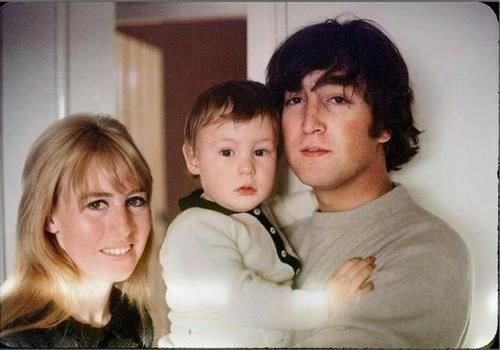“The One Dollar Check: Why John Lennon Left Julian Out of His Will — A Painful Tale of Inheritance, Estrangement, and Yoko Ono’s Role in a Broken Legacy”
When John Lennon was murdered in December 1980, the world mourned the loss of a musical genius. But for his eldest son, Julian Lennon, grief was accompanied by something else—confusion, heartbreak, and a deeply personal sense of betrayal. Though Lennon’s estate was estimated at more than $235 million, Julian, his son from his first marriage to Cynthia Powell, received almost nothing.
The exclusion was not accidental. During Lennon’s divorce from Cynthia in the late 1960s, a modest trust was arranged for Julian—amounting to just £50,000, payable when he turned 21 in 1984. While technically fulfilling this legal obligation, the gesture felt like a fraction of what Julian believed he deserved—not just in financial terms, but in love and legacy. The emotional wound was widened when, in the 1980s, Julian received a check from Yoko Ono’s office for exactly one dollar. Some believe it was meant as a cruel joke or a dismissive formality. Julian, devastated by the coldness of the gesture, framed the check as a grim reminder of what he called “the final insult.”
The strained relationship between Julian and his father in John’s final years had already been well-documented. John, by then fully immersed in his new life with Yoko Ono and their son Sean, had grown increasingly distant from Julian. Though Julian visited occasionally, he later spoke of feeling like an outsider—a ghost of a past John was eager to leave behind. Yoko Ono’s increasing control over John’s estate after his death only reinforced Julian’s isolation.
But Julian did not accept his fate quietly. In the late 1990s, he launched a legal battle against Yoko for a larger portion of the estate. The case dragged on for a decade, cloaked in legal secrecy, but it ultimately ended in a private settlement. Though Julian has never publicly disclosed the amount he received, he has acknowledged that it helped secure his financial future—though at great emotional cost.
Today, Julian Lennon resides peacefully in the serene surroundings of Lake Como, Italy. Financially comfortable, he no longer needs to work for a living, but he continues to create—through music, photography, and philanthropy. Yet the wounds of his childhood remain. Julian has had to buy back many of his father’s personal belongings at auction—items that once belonged to a man he both idolized and resented. His mother, Cynthia, who had been left without significant financial support after her divorce, was forced to sell many of John’s possessions to stay afloat.
In a moving and compassionate gesture, Paul McCartney stepped in at one such auction. He purchased several of John’s handwritten letters to Cynthia and returned them to her—beautifully framed. It was a quiet act of kindness that spoke volumes about McCartney’s enduring respect for his former bandmate’s first family.
Julian Lennon’s story is not just about inheritance or fame—it’s about emotional estrangement, the painful complexity of blended families, and the legacy left behind by one of the world’s most celebrated musicians. It’s a reminder that money cannot mend all wounds, and that for all his brilliance, John Lennon was, in the end, a man grappling with the same failings and fractures that afflict many families.
